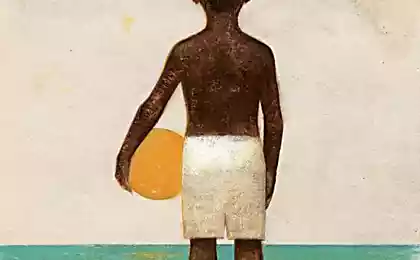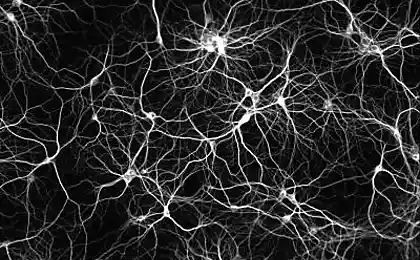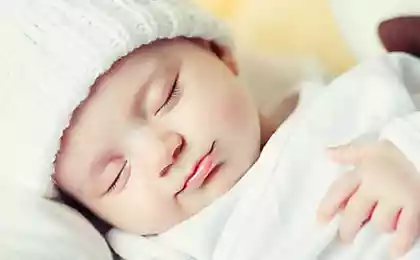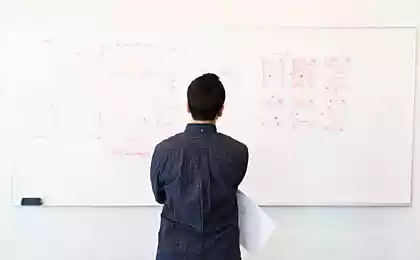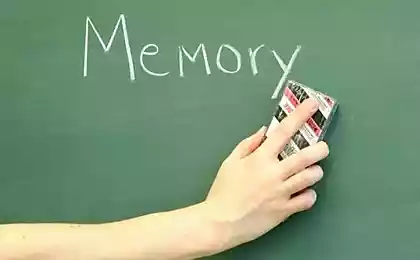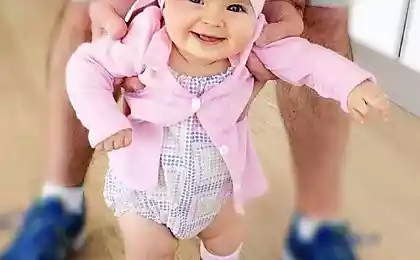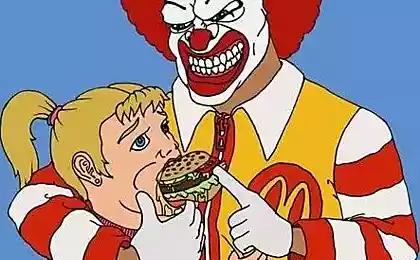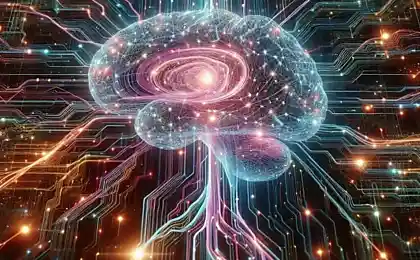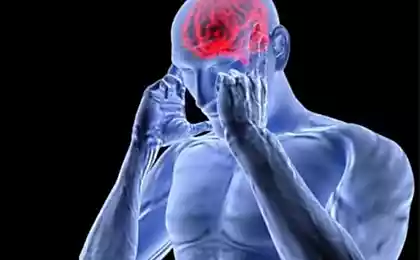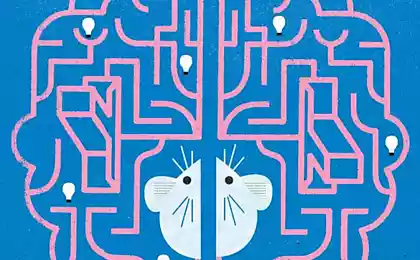553
Where does childhood— why early memories are not stored in our memory
Say, Leo Tolstoy remembered himself from the age of two, but most adults can boast something similar. Where are childhood memories and can they awaken?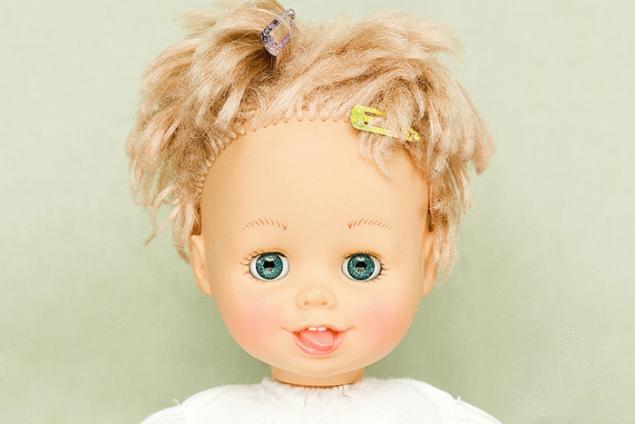
A few years ago I thought I had a chance to recover the lost past and re-experience what I felt when my parents and my five brothers and sisters lived like one big family. We — that is me, dad and brothers decided to go to a country house where you vacationed every summer. When we got there, they were filled with a wave of memories. Dad exclaimed, "Your mother just hated this kitchen. She always made hearty breakfasts — eggs, sausage and pancakes. And as soon as she finished the clean up, as you again run in and demanded lunch." My older brothers used to run around, telling stories about each of its parts. I don't remember anything.
I know that I was not able even to remember something, is not unusual. Hardly someone else did it. In 1910 Sigmund Freud introduced a special term "childhood amnesia" to describe the lack of adult memories of their first three or four years of life and the fragility of memories of events before the age of seven. For a century, scientists struggled with the question of whether these memories somewhere deep in the subconscious and can they be retrieved, if found a suitable key. That's why I went to that house: I had intended with types, smells, sounds and touch to trigger your memory. But the results of modern research indicate that those childhood memories disappear forever.
At the time, Freud argued that the reason for these gaps in the memory of sexual trauma, which we are trying to suppress. Then, in the 1980s, most scientists thought that the child simply does not create memories, because what is happening leaves no traces in his head. But in 1987, psychologist Robin Fivush and his colleagues at Emory University in Atlanta dispelled this myth, showing that children under the age of two and a half years may well describe the events of six months ago. However, we lose memories of them, even as children.
Psychologist Carole Peterson of Memorial University of Newfoundland in Canada has conducted a series of experiments to find out the age at which childhood memories fade. First, scientists asked the children four to 13 years to describe the three earliest events of their lives. Parents were there to confirm the veracity of these stories. Each of the subjects was able to recall a story that happened to him somewhere at the age of two. Two years later, Peterson repeated the experiment. More than a third of children aged 10 years and older preserved memories, while participants of younger age (especially those who at the time of the first study was four years) was as a blank sheet of paper. "Even on our tips and they said that nothing like them was not, — says Peterson. We watched childhood amnesia in action."
To form long term memories requires the combination of biological and psychological factors. Main material memory information from the five senses — are recorded in the cerebral cortex, and then in the hippocampus, this information is associated in one new memory and added to the other similar and already stored there. But some parts of the hippocampus only develop to a more Mature age, so that children's brains are just not prepared for this process.
Besides the fact that children are confused in chronology, they also have no sufficient vocabulary to describe events. And without it they can't form causal relationships, which, according to Peterson, are the basis of the mechanism of memory. In addition, children do not have consistent awareness of themselves, necessary for reflection, and therefore to memorize.
Fragile childhood memories destroyed. In the early years we create in the dentate gyrus part of the hippocampus, a hurricane of new neural connections. This process continues in adulthood, although not with such intensity. A recent study by neuroscientists Fields Frankland and Tires Josslyn from the hospital for sick children in Toronto shows that neurogenesis may contribute to forgetting because of the failure chain, which contains information about the past.
Also our memories of the event can be distorted under the influence of other men's memories or if new information is superimposed on the one that is already in storage in the hippocampus. For example, you remember the name of the person, and later meet another with the same name — and not sure what was the name of the first. In addition, the memories can disappear if we do not periodically in your head: the synapses that connect the neurons disintegrate if they are not needed.
The most persistent memories, those that remain with us for life, formed during the so-called peak memories — 15 to 30 years, when we put a lot of energy to explore the world and themselves. Events, culture, people — everything in this time is so bright it outshines the next few years. That's why in old age we say: "Then the movies were better, music, fashion, and political leaders, and friendship, and novels".
Source: theoryandpractice.ru

A few years ago I thought I had a chance to recover the lost past and re-experience what I felt when my parents and my five brothers and sisters lived like one big family. We — that is me, dad and brothers decided to go to a country house where you vacationed every summer. When we got there, they were filled with a wave of memories. Dad exclaimed, "Your mother just hated this kitchen. She always made hearty breakfasts — eggs, sausage and pancakes. And as soon as she finished the clean up, as you again run in and demanded lunch." My older brothers used to run around, telling stories about each of its parts. I don't remember anything.
I know that I was not able even to remember something, is not unusual. Hardly someone else did it. In 1910 Sigmund Freud introduced a special term "childhood amnesia" to describe the lack of adult memories of their first three or four years of life and the fragility of memories of events before the age of seven. For a century, scientists struggled with the question of whether these memories somewhere deep in the subconscious and can they be retrieved, if found a suitable key. That's why I went to that house: I had intended with types, smells, sounds and touch to trigger your memory. But the results of modern research indicate that those childhood memories disappear forever.
At the time, Freud argued that the reason for these gaps in the memory of sexual trauma, which we are trying to suppress. Then, in the 1980s, most scientists thought that the child simply does not create memories, because what is happening leaves no traces in his head. But in 1987, psychologist Robin Fivush and his colleagues at Emory University in Atlanta dispelled this myth, showing that children under the age of two and a half years may well describe the events of six months ago. However, we lose memories of them, even as children.
Psychologist Carole Peterson of Memorial University of Newfoundland in Canada has conducted a series of experiments to find out the age at which childhood memories fade. First, scientists asked the children four to 13 years to describe the three earliest events of their lives. Parents were there to confirm the veracity of these stories. Each of the subjects was able to recall a story that happened to him somewhere at the age of two. Two years later, Peterson repeated the experiment. More than a third of children aged 10 years and older preserved memories, while participants of younger age (especially those who at the time of the first study was four years) was as a blank sheet of paper. "Even on our tips and they said that nothing like them was not, — says Peterson. We watched childhood amnesia in action."
To form long term memories requires the combination of biological and psychological factors. Main material memory information from the five senses — are recorded in the cerebral cortex, and then in the hippocampus, this information is associated in one new memory and added to the other similar and already stored there. But some parts of the hippocampus only develop to a more Mature age, so that children's brains are just not prepared for this process.
Besides the fact that children are confused in chronology, they also have no sufficient vocabulary to describe events. And without it they can't form causal relationships, which, according to Peterson, are the basis of the mechanism of memory. In addition, children do not have consistent awareness of themselves, necessary for reflection, and therefore to memorize.
Fragile childhood memories destroyed. In the early years we create in the dentate gyrus part of the hippocampus, a hurricane of new neural connections. This process continues in adulthood, although not with such intensity. A recent study by neuroscientists Fields Frankland and Tires Josslyn from the hospital for sick children in Toronto shows that neurogenesis may contribute to forgetting because of the failure chain, which contains information about the past.
Also our memories of the event can be distorted under the influence of other men's memories or if new information is superimposed on the one that is already in storage in the hippocampus. For example, you remember the name of the person, and later meet another with the same name — and not sure what was the name of the first. In addition, the memories can disappear if we do not periodically in your head: the synapses that connect the neurons disintegrate if they are not needed.
The most persistent memories, those that remain with us for life, formed during the so-called peak memories — 15 to 30 years, when we put a lot of energy to explore the world and themselves. Events, culture, people — everything in this time is so bright it outshines the next few years. That's why in old age we say: "Then the movies were better, music, fashion, and political leaders, and friendship, and novels".
Source: theoryandpractice.ru



